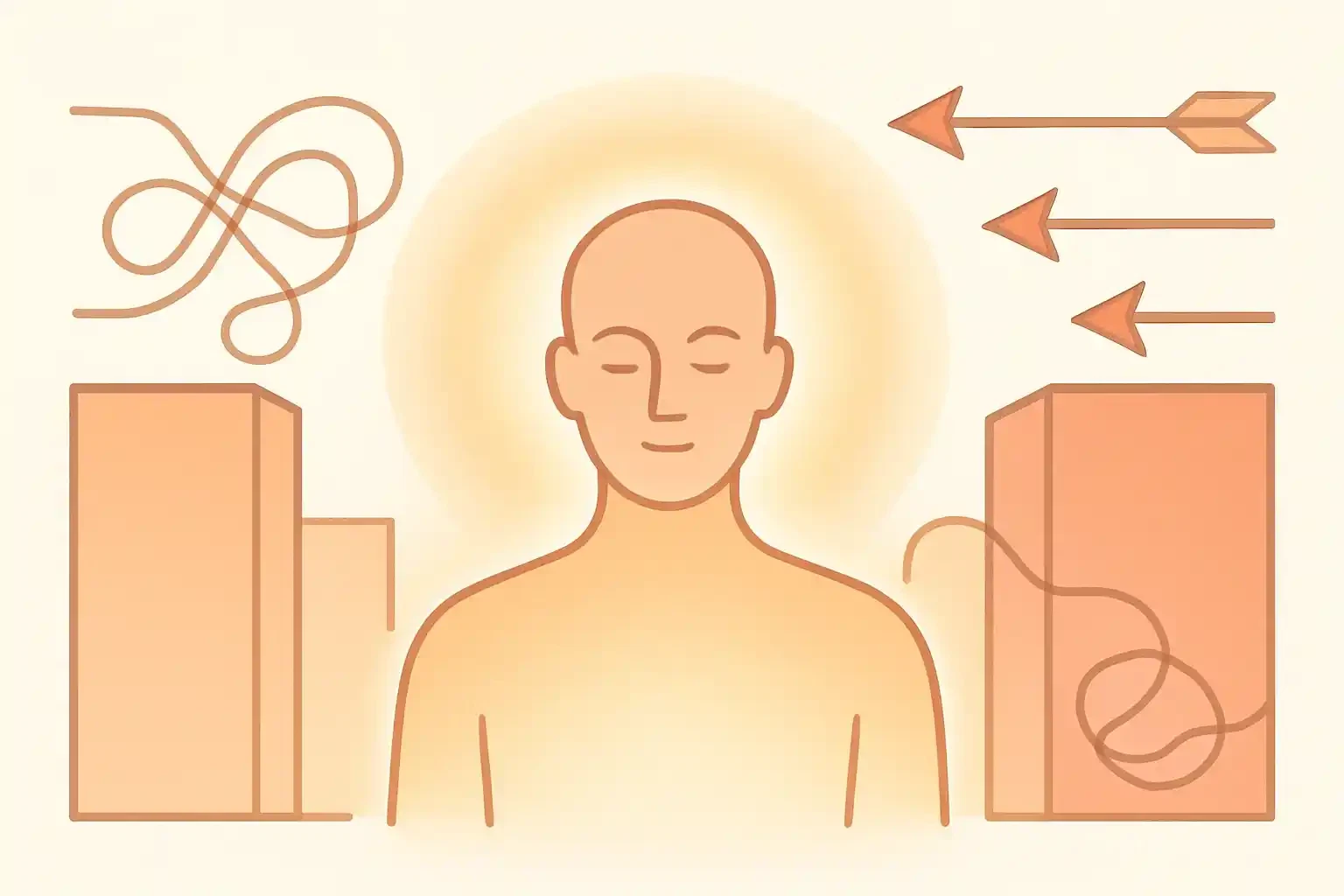
Stress, Anxiety, and Racing Mind
Overthinking, worry, and mental tension keep the nervous system activated, making it difficult to transition into the relaxed state necessary for sleep.
Soothe the nervous system with restorative shapes, breath that lengthens the exhale, and practices that invite deep rest and peaceful slumber.

In yogic philosophy, sleep is called Nidra - one of the five states of consciousness and far more than mere unconscious rest. Quality sleep is a profound state of renewal where the body repairs itself, the mind processes experiences, and vital energy is restored. During sleep, the nervous system balances, stress hormones regulate, and immune function strengthens. Yoga recognizes that restorative sleep is not a luxury but an essential pillar of health, necessary for harmony between Sharira (physical body), Manas (mind), and Atma (spirit). When sleep is disrupted, it affects every aspect of our well-being, making sleep therapy yoga an invaluable practice for modern life.

Overthinking, worry, and mental tension keep the nervous system activated, making it difficult to transition into the relaxed state necessary for sleep.

Screen time before bed, irregular sleep schedules, caffeine consumption late in the day, and lack of a calming bedtime routine interfere with natural sleep preparation.

Chronic pain, breathing difficulties, thyroid disorders, hormonal imbalances, and sleep apnea can significantly disrupt sleep quality and duration.

Depression, anxiety disorders, PTSD, and other mental health conditions often include sleep disturbances as symptoms.
Create the perfect conditions for restorative sleep through gentle movement, conscious breathing, and mindful relaxation practices.

Practice Yoga Nidra (yogic sleep) for 15-20 minutes before bed to naturally transition your nervous system into rest mode. This powerful relaxation technique guides you through systematic body awareness, helping release physical tension and mental chatter while preparing your mind for deep, restorative sleep.
Avoid caffeine, alcohol, and heavy meals 3-4 hours before bedtime. Instead, practice cooling pranayama techniques like Sheetali (Cooling Breath), Anulom Vilom (Alternate Nostril Breathing), or extended exhale breathing (4:8 ratio) to naturally calm your nervous system and prepare for rest.
Turn off screens 1-2 hours before bed and replace screen time with 10-15 minutes of meditation, gentle chanting of 'Om', or gratitude practice. This helps reduce blue light exposure, calm mental activity, and support natural melatonin production for better sleep quality.
Incorporate gentle, restorative poses like Balasana (Child's Pose), Viparita Karani (Legs-Up-the-Wall), Supta Baddha Konasana (Reclined Bound Angle), and gentle spinal twists. These poses activate the parasympathetic nervous system, release physical tension, and signal to your body that it's time to rest.
Modern research supports yoga as a natural aid for alleviating insomnia and promoting restful nights. Gentle stretches and pranayama calm the nervous system, lower anxiety, and align the body's natural sleep rhythm. With regular practice, yoga helps reduce overthinking, ease tension, and foster inner calm. Over time, sleep becomes deeper, more restorative, and more refreshing, helping you wake with renewed clarity and energy.
Explore timeless wisdom on sleep, wellness, yoga, and more — all in one place.

Sleep Specialist

Yoga Instructor

Wellness Coach

Sleep Specialist

Yoga Instructor

Wellness Coach
